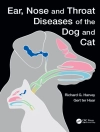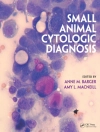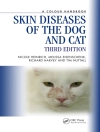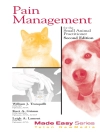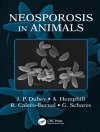This book illustrates the importance and significance of improvement strategies for pig farming. It covers various topics such as proper handling, general health care management, stress management criteria, and entrepreneur development through pig farming. The book also provides current useful information about the improvement through genetic enhancement, stress monitoring, and environmental impact on pig production and management. The behavior, welfare, and mycotoxins control in feedstuffs is elaborately described to make the book more lucrative. The chapters also describe recent advancements in pig farming, business management, and entrepreneurship for better pig improvement. Finally, the book also elucidates a comprehensive as well as representative description of the general health, management, and productive performance of pigs. The book is helpful for undergraduates, postgraduates, research scholars, academicians, farm managers, field veterinarians, and meat plant officers.
Tabela de Conteúdo
Chapter 1: Introduction.- Chapter 2: Breeds of Pigs of India and its productivity.- Chapter 3: Breeds of Pigs of Nepal and its productivity.- Chapter 4: Body Condition Scoring in Pigs.- Chapter 5: Pigs production and Livelihood Security.- Chapter 6: Pig Behavior and Welfare.- Chapter 7: Pigs Exhibition Rules, and its monitoring.- Chapter 8: Impact of Mycotoxins on Pig Production.- Chapter 9: Effect of Environment on Pig’s Health.- Chapter 10: Production of Bio-fuel from Pork Fat.- Chapter 11: Pigs Farming and business for financial benefit.- Chapter 12: Entrepreneur Development through Pig farming.
Sobre o autor
Dr. Tanmoy Rana is currently working as an Assistant Professor of Veterinary Clinical Complex at West Bengal University of Animal and Fishery Sciences, Kolkata, India. Dr. Rana has a bachelor’s degree in veterinary sciences and animal husbandry, a master’s degree in veterinary medicine, ethics & jurisprudence from West Bengal University of Animal and Fishery Sciences, Kolkata, India, and a Ph.D. in veterinary science from the University of Calcutta, Kolkata, India. His research interests involve arsenic toxicity, molecular diagnosis, molecular toxicology and medicine, oxidative stress, immunopathology, nanoparticles, echinococcosis, and host-microbes interactions. Dr. Rana is actively engaged in teaching and clinical practices in veterinary medicine and research related to animal health, production, and disease monitoring regimes. He has published several research articles in reputed international and national journals along with review articles in international journals. He is an editorial board member of several journals and has published various national and International books
Dr. Benito Soto-Blanco is currently a Professor of the Department of Veterinary Clinic and Surgery at the Veterinary School, Federal University of Minas Gerais, Brazil. He is a highly accomplished veterinarian with a bachelor’s degree in veterinary medicine from Universidade Paulista, Brazil, a master’s, and Ph.D. in experimental and comparative pathology from Universidade de São Paulo, Brazil, with a period at ARS/USDA Poisonous Plants Research Laboratory, Logan, UT, USA. He has focused his research on veterinary toxicology, pathology, and clinical pathology. Dr Blanco has published more than 200 research articles in peer-reviewed international journals and authored or co-authored two books and more than 20 book chapters. Dr. Soto-Blanco is Editor-in-Chief of the Brazilian Journal of Veterinary Pathology Research.


